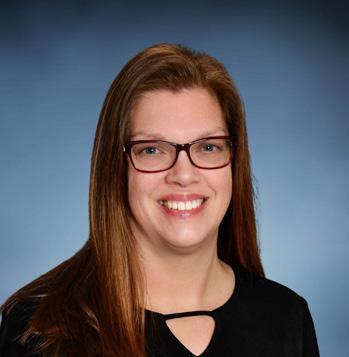
2 minute read
Expert Care
Legacy Work
By Tracey Gladmon
Memories
– Pictures. A Place. A Smell. An Image. A Sound. Things that sometimes although not tangible, can bring forth great comfort and solace to those left behind. It is a gift to others. Memories are things that one can create or develop, to leave to those that can remind them of who they were and how they want to be remembered. Every day we can make memories. Sometimes in the busy part of life or during the journey of hospice, we forget to stop and think about the memories our loved ones have made, or are making in their final journey.
In hospice, we have the opportunity to help those patients and/or families be involved in Legacy Work. As social workers, our primary goal is patient centered practice. We listen to our patients, we hold the hands of their loved ones, we walk beside them in their journey. It is truly a gift that our patients and families allow us to be a part of their journey – as sometimes it can be extremely challenging and personal.
Legacy Work allows a patient to actively participate in leaving special memories for their loved ones. This type of work isn’t about death and dying, but about life and living. It’s the act of sitting down and taking time to purposefully create something for the people you love and care about. In Legacy Work there are no rules, no restrictions or limitations. Sometime words can be hard to say, so leaving memories can take on lots of different variations.
Grief comes in stages, and not just after someone’s death. Most patients and families experience anticipatory grief. This type of grief occurs while our patients are still living. Participating in Legacy Work can be very therapeutic to address anticipatory grief. Children often process grief in a different manner than adults. Often times they are not able to express their feelings and thoughts in words. By involving children in Legacy Work, they can start to process changes that could be occurring right within their own household. This allows them to actively participate in a project that might not require them to express their feelings verbally, but still allow them to process their feelings therapeutically.
These are just some of the few Legacy Work ideas that our social workers have either helped a patient develop or offered as suggestions for them to complete on their own:
• Scrapbooks
• Recipes
• Video Montage
• Cards/Letters/Journaling
• Songs/Bible Verses
• Blanket/Quilt (scraps of clothing)
• Recording your Voice (reading a story for grandchildren to hear)
• Footprints/Handprints/Decorations (for parents, siblings)
• Planting a tree
Leaving a legacy gives your loved ones something to hold on to and something that can provide healing and comfort year after year.
Tracey
Tracey Gladmon, is our Social Work Manager. You can contact her at: tgladmon@coastalhospice.org or by phone: 410-742-8732 ext. 608










